Acoustic diffuser - Woody Omni Diffuser



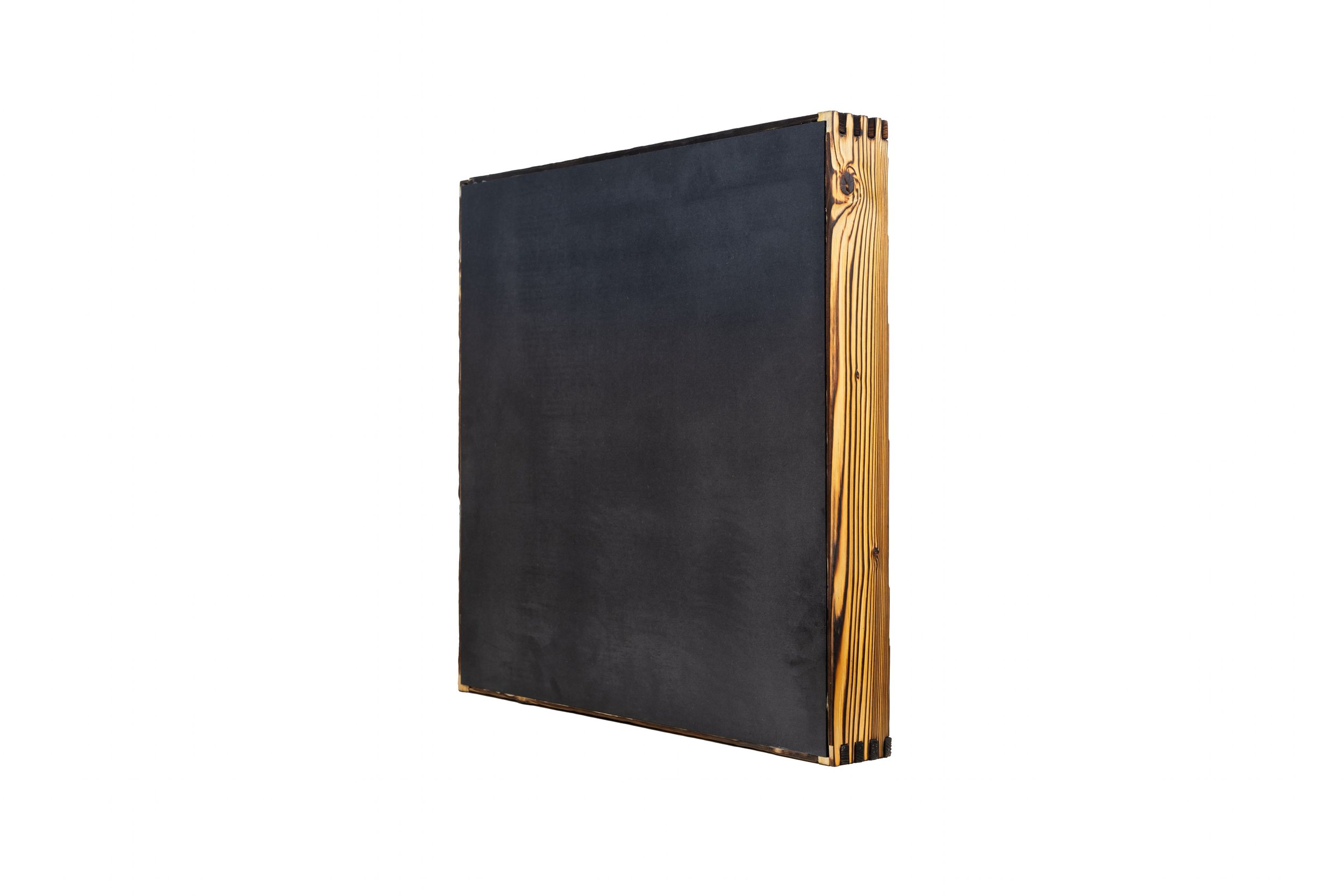

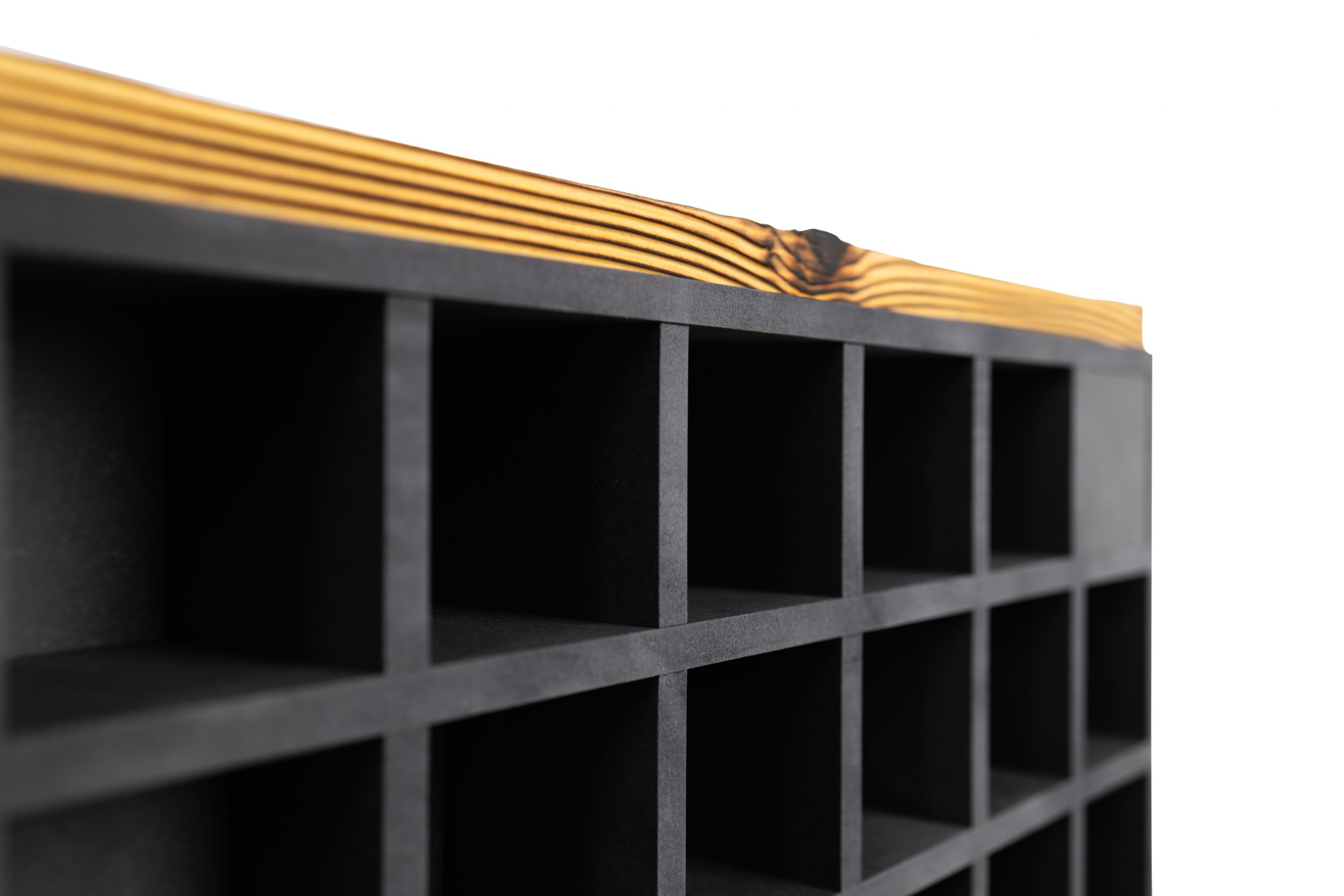
Acoustic diffuser - Woody Omni Diffuser
Enhance your space with the ultimate 2D QRD acoustic diffusion. The Woody Omni Diffuser is engineered for unparalleled performance to uniformly scatter the soundwaves into many directions. Elevate both your sound and your style with diffusers proudly handmade in the Czech Republic.
Key features:
boosts sound quality and prevents fluttering echoes
2D QRD design uniformly scatters the soundwaves and keeps the energy in the room
slim 10 cm depth fits anywhere
premium wooden finish
save 10% when you buy in bulk
DESIGN YOUR ROOM WITH WOODY Omni Diffuser
Traditional acoustic treatments often rely on absorption to handle reflections, leaving your room feeling ‘dead’—bad news for music and speech. Introducing Woody Omni Diffuser: a smarter way to control reflections while keeping your space vibrant and natural. Its unique 2D QRD shape scatters sound evenly in every direction, creating great coverage and a stunning look.
Each Woody Omni Diffuser is original, handmade in the Czech Republic, with our signature and patented design.
The problem with bare walls
Flat, hard surfaces bounce sound around in ways that ruin speech clarity and music quality. We use mostly acoustic absorption panels to fix it and reduce the reflections, but if you use too much absorption, it can suck the life out of your room.
2-directional design with vertical and horizontal scattering of soundwaves
The solution
The Woody Omni Diffuser is a 2D QRD sound diffuser that changes the game. It spreads sound evenly in all directions, handling reflections twice as well as the standard 1D QRD designs. Its broad bandwidth diffusion and sleek design make it perfect for walls or ceilings.
Performance & placement
Above 500 Hz, the Woody Omni Diffuser really shines. The dimensions of the build determine its effectiveness, and the size of 60x60 cm is the perfect sweet spot.
In the music studio, we suggest placement in the back of the room to follow the classic LEDE system (Live End Dead End) to keep the back half of the room sound more spacey and prevent unwanted reflections for the listening position in the back of the room.
In the HiFi listening room, you can use the Woody Omni Diffuser in the front of the room to treat the first reflections and place it whenever you want to get rid of the linear reflections from the bare walls, but you don’t want to use absorption.
Packing them by two
Woody Omni Diffuser is in the ‘Kid’ size 60x60 cm, so we are packing them in two pieces in one box. A single piece doesn’t make much sense from the acoustic perspective so that you can get two or four at once. Remember, you must cover a sufficient wall area to achieve evenly diffused sound.
“The word “omni” comes from Latin, meaning “all.” The Woody Omni Diffuser spreads sound waves evenly in every direction.”
PROPERTIES
Premium acoustic panel designed to enhance the sound experience in hi-fi listening rooms and professional music studios.
100% Czech handmade product with a quality guarantee
Practical working range: scattering from 500 Hz and above
Dimensions of the module 60 x 60 x 10 cm (width x height x depth)
The package consists of 2 modules
Luxury wood finish
Wall hang system included
Weight approx 20 kg (2 x 10 kg)
Design can be made to measure
Interior use only
For cleaning, use a damp cloth with soapy water
How we make it
How to use the Woody Omni diffuser
Effectively scatters sound waves
Acoustic diffusers are the holy grail of acoustic treatment in a room. It’s a device that is used to do the exact opposite of an acoustic absorber - to keep the sound energy in the room. But the important part is that the diffuser scatters the sound waves evenly to create an even diffuse field. If you use a rugged surface like a stone wall you will get diffusion as well, but it won’t be even, it will be just random.
A true diffuser directs the sound reflections back to your listening position, making your room sound more lively. In comparison to rugged walls, you can actually predict the working range of the diffuser because the design is based on a physics formula.
Place them behind your listening position
To make the best out of the diffusers, you should place them at least 2 to 3 meters behind your listening position so the sound has enough space to create an even diffuse field. An array of diffusers next to each other works the best. Ideally, you want to aim for at least 2 meters wide diffusion wall behind you. If you have a bigger room, you should use more.
Left: sound wave reflected from the bare wall. Middle: sound wave absorbed by the acoustic absorber placed on the wall. Right: sound waves scattered in various directions after bouncing off the diffusor.
You can place diffusion on sidewalls or the front wall as well, however, that is usually done after you’ve treated your back wall already. Diffusers on the first reflection points increase the liveliness of the music in your room while preventing the sound from bouncing from the bare walls. The same works for the front wall as well, if you want to keep more energy in your room, but you want to get rid of unwanted reflections from the walls, you can substitute the absorption panels with a quality diffusers.
The science behind
2D QRD
Detail of the 2D construction.
Woody Omni Diffuser is a quadratic residue diffusor (QRD) designed based on the original diffusers invented in the 1970s by physicist Manfred Schroeder. This type of diffusion is the golden standard in acoustics, and we call it the only true diffusion because of its efficiency that transcends numbers theory.
The dimensions of the QRD diffusor predetermine its working range and the frequencies at which it works. Its construction is two-dimensional (vertical/horizontal surfaces), so it scatters sound uniformly into a hemisphere. As you can see on the image, each well has a different depth, thus making it effective at various frequencies, over the whole upper-mid spectrum and higher frequencies 500 Hz+.
FAQ
What is the difference between absorber and diffuser?
Absorbers take in the sound energy when the sound waves hit them and transform it into heat. Diffusers do the exact opposite of absorption but in a more clever way. They evenly distribute the sound waves into the room by scattering them from the irregular surface. By creating this even diffuse field, diffusers maintain the sound energy in the room and make the music feel spacious and lively.
Does every diffuser work the same way?
No. Only mathematically calculated diffusers like Woody Fractal can have a projected effective range and can be designed to work on specific frequencies. A rugged wall can act as a diffuser as well, but the diffusion will be random and not ‚true‘. That‘s why QRD diffusers are used in professional spaces.
How many diffusers do I need in my room?
Diffusers need to be at least a few meters wide or they need to be placed in an array to make a difference. Since our goal is to create an even diffuse field that will make the sound more lively, we need to line a whole array of diffusers next to each other to scatter as much energy as possible.
The highest diffusion effect is accomplished when we place 5 and more diffusers next to each other. There is the math behind it, but to simplify it, the more periods (diffusers next to each other) there are, the more even the energy gets distributed. And that's what we want. If your diffusion panel array is less than one meter wide, you will probably not hear much of a difference.
Where do I place diffusers?
On the rear wall. That is the most popular option in music studios, listening rooms, home theaters, or other musical spaces. The idea is that if you place your listening position far enough from the rear wall (at least 2 meters), the diffusers on the wall will have enough space to evenly distribute the energy and you will get the best experience.
On the side walls. If you don't want to use only absorbers on the first reflection points and want to preserve more liveliness in your room, you can place the diffusers on the sidewalls between speakers and the listening position as well. The important thing is that the first reflection points are covered and the energy is not reflected by the flat walls directly at the listening position.
On the front wall. This option is suitable for audiophiles, who already treated their rear wall with diffusion and want to add even more spaciness to their music. You can create the effect of 'endless space' by having two opposite walls covered by arrays of diffusers so the energy is almost never reflected by the flat surface.
How is the effectiveness of the diffusion measured?
It is very difficult to test the diffusion and almost nobody does it. Why? It‘s because the QRDs are designed according to the numbers theory from R. Schroeder and it works. Mathematic formulas based on the experiments in the 1970s are used to design the diffusers and modeling software is then used to test their effectiveness. We used special software to test out all our designs before we decided on the best outcome that went into production.
Should I always use diffusion?
We don't recommend placing diffusers on a wall if you don't have enough room to let the energy evenly spread out before it reaches your ears at the listening position. This means at least 2 meters from the rear wall or more. If your room is smaller, invest more of your time to tame the low frequencies and flutter echoes.
Can you make me a panel on request?
Yes. That's what we like the most. Ekustik diffusers and absorbers are designed to withstand for a lifetime, so let's equip your room with some designer pieces. Don't hesitate to contact us!
Get inspired

















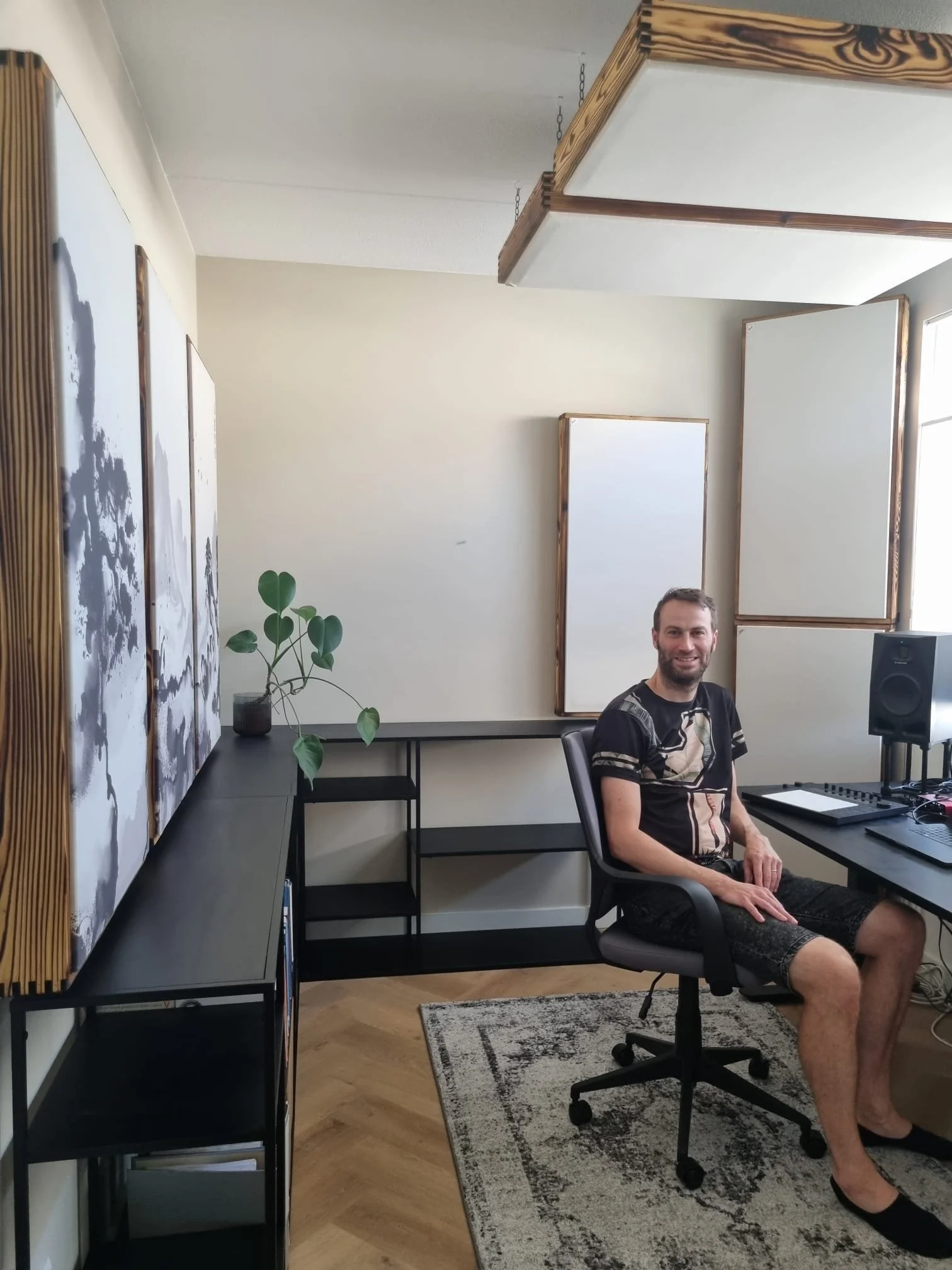











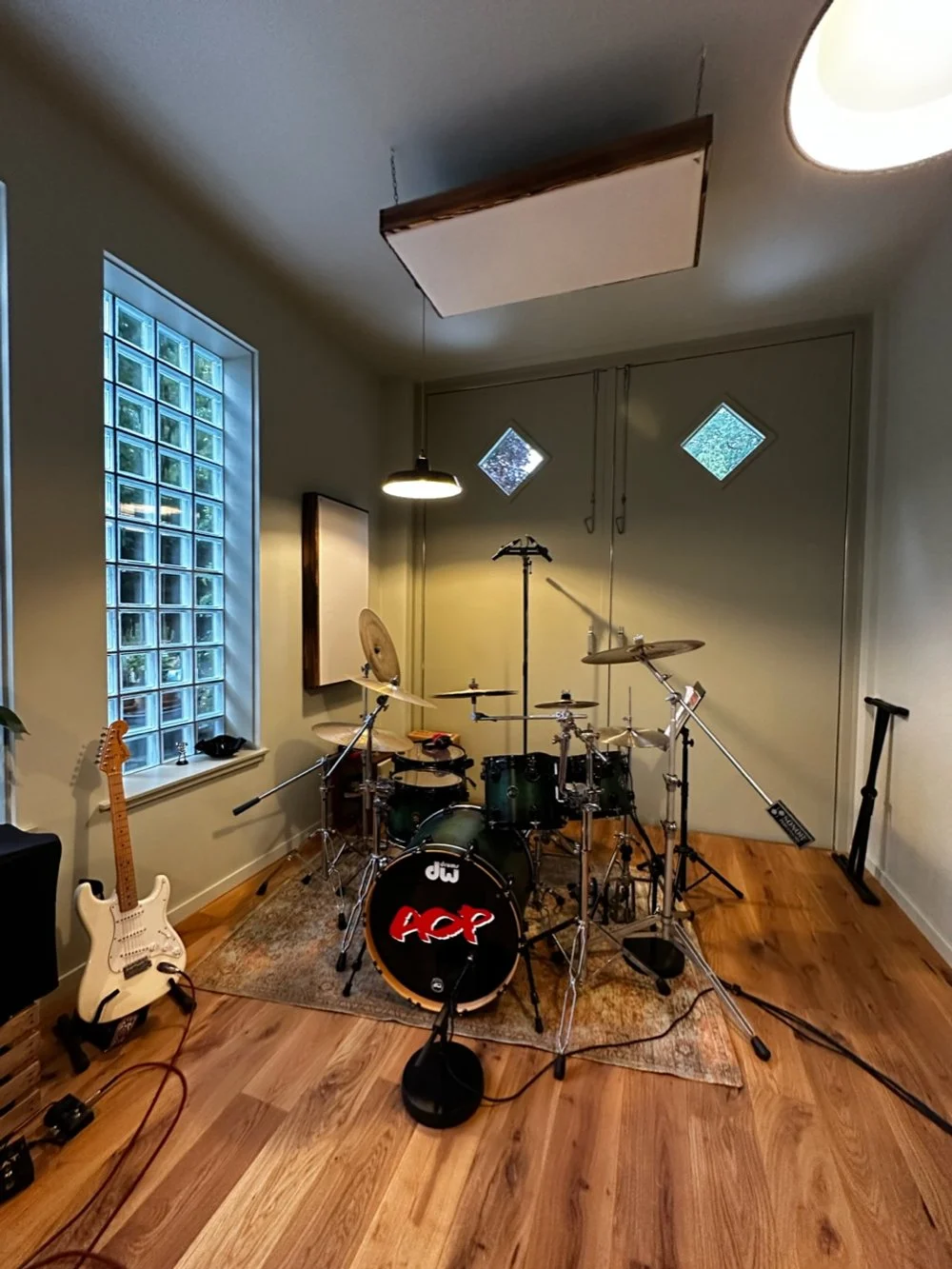





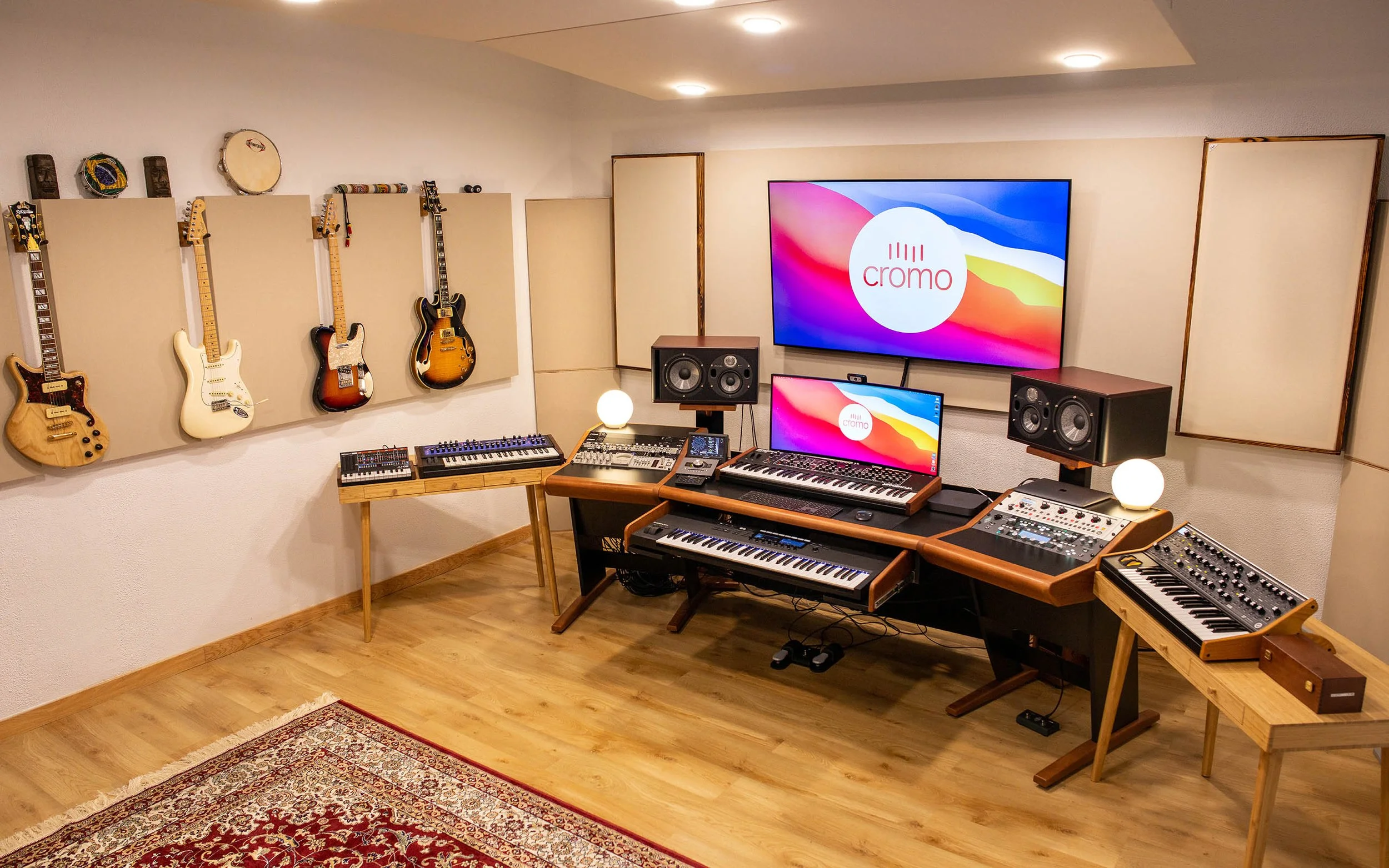








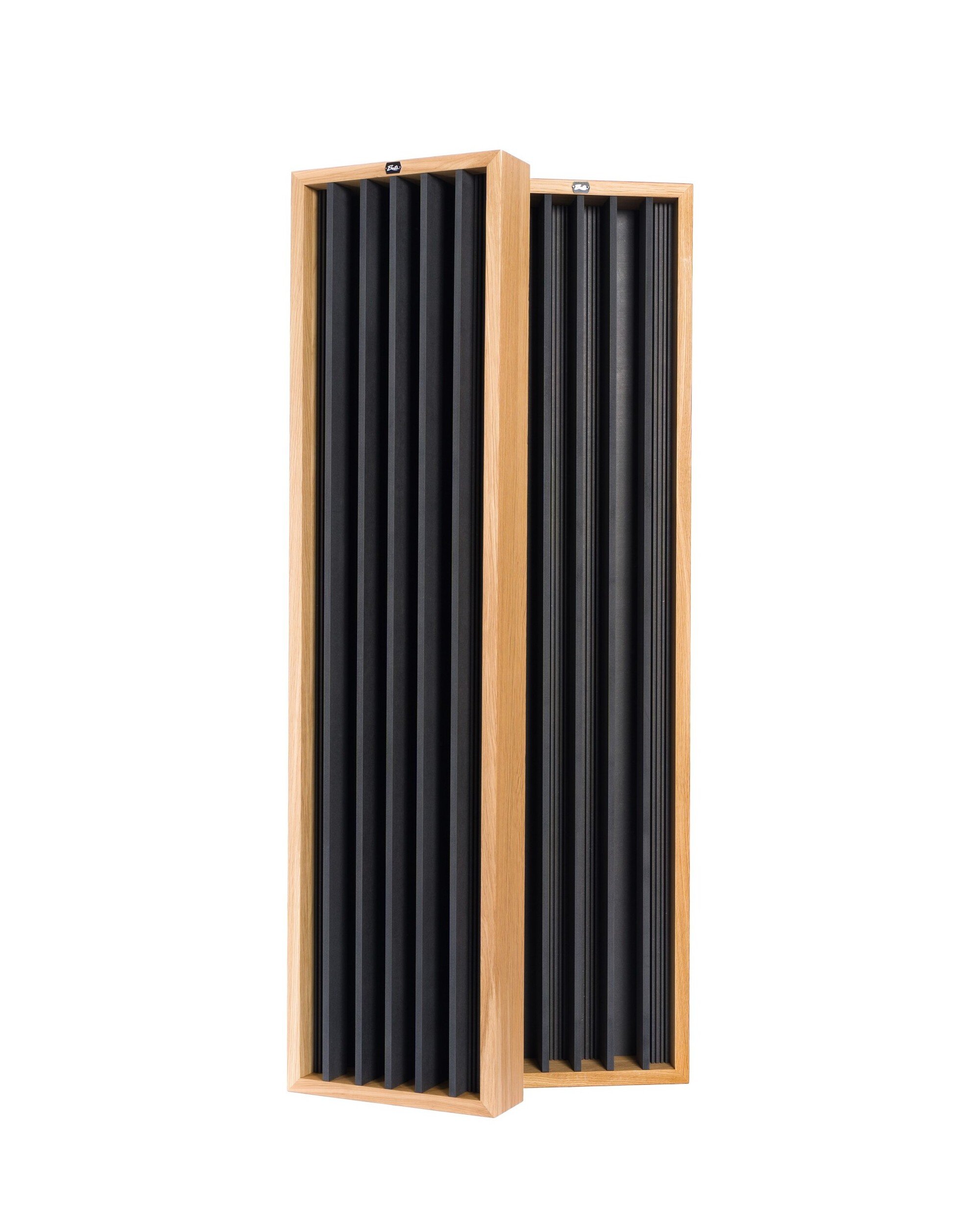
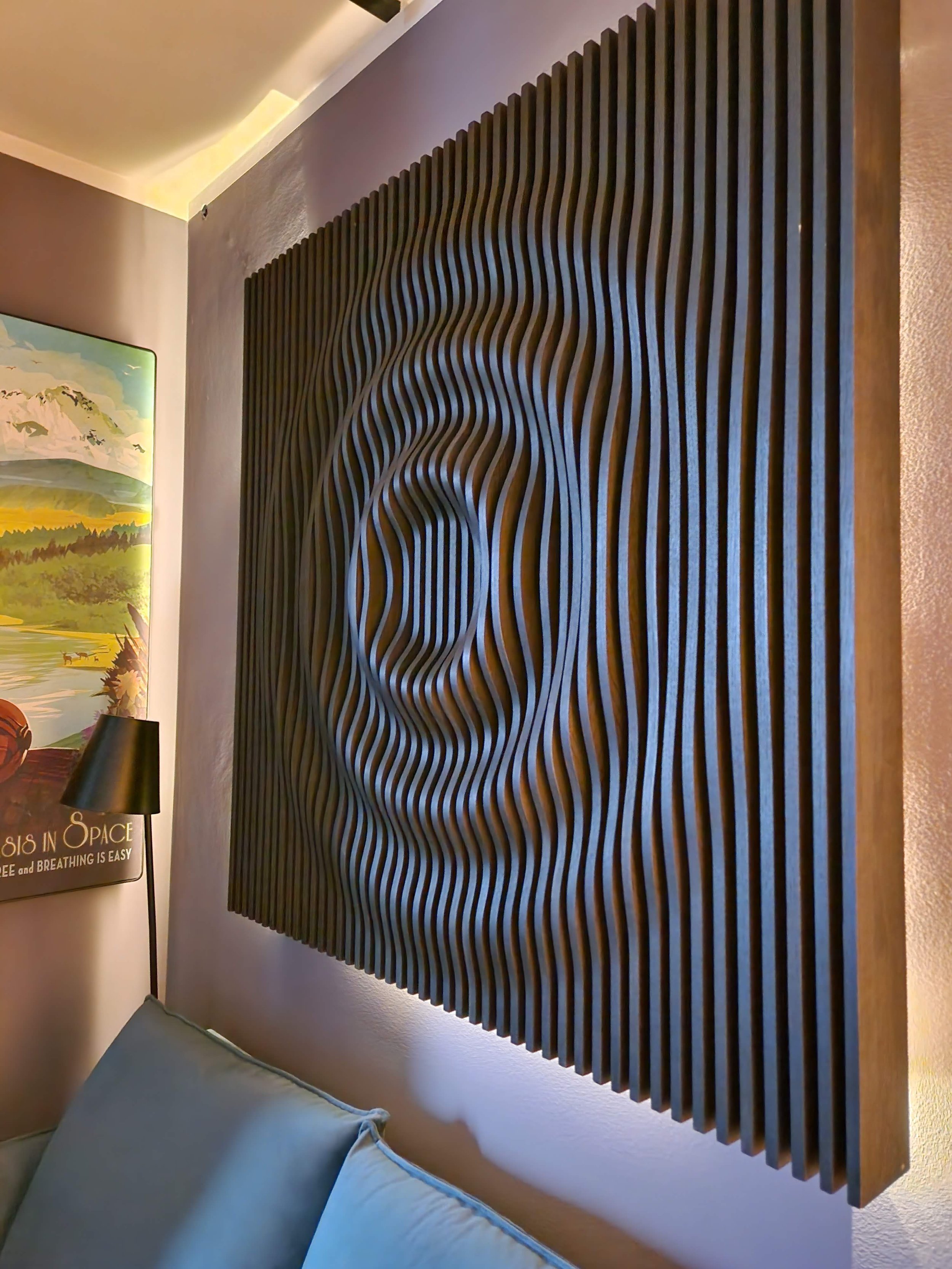

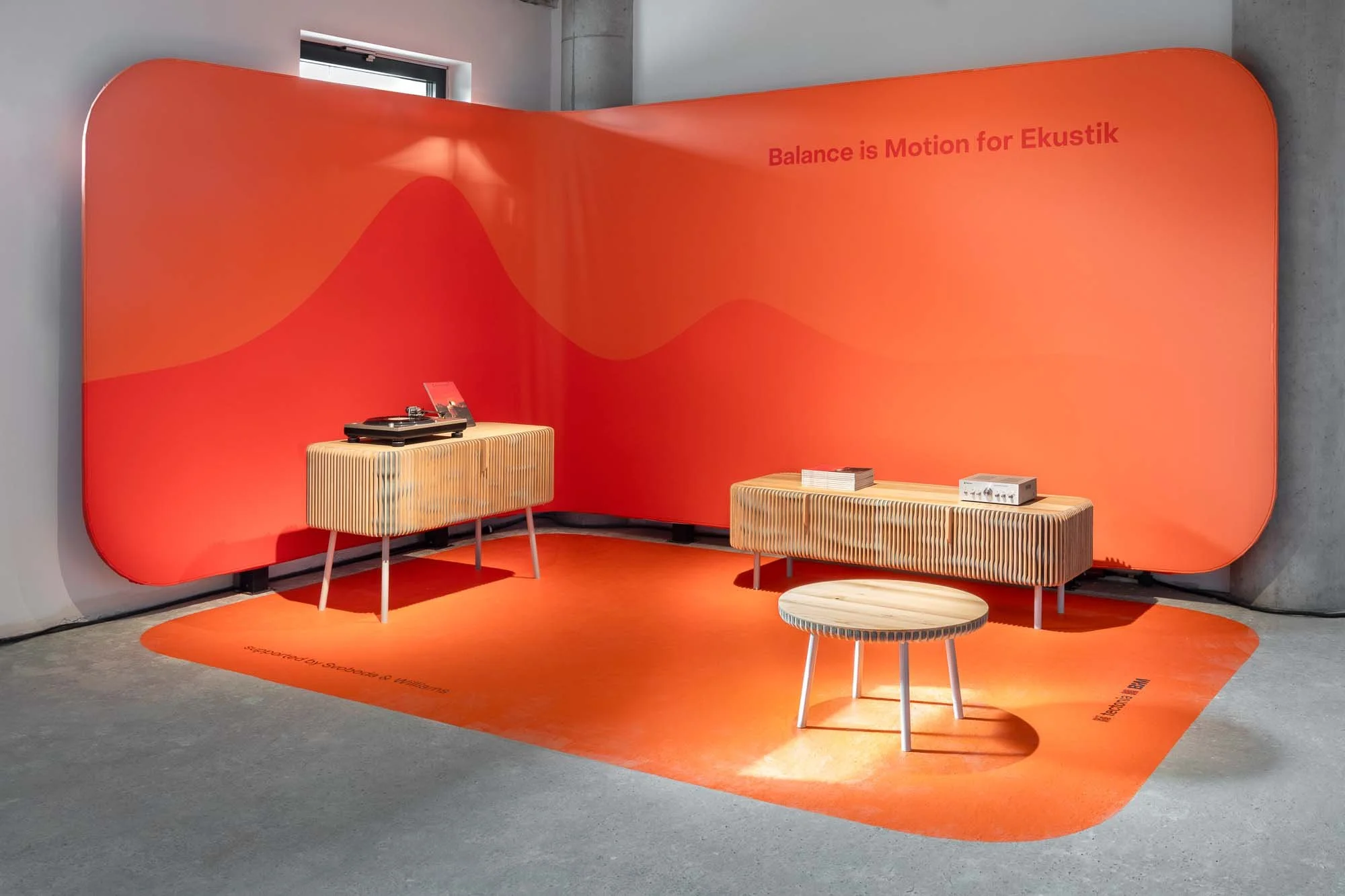
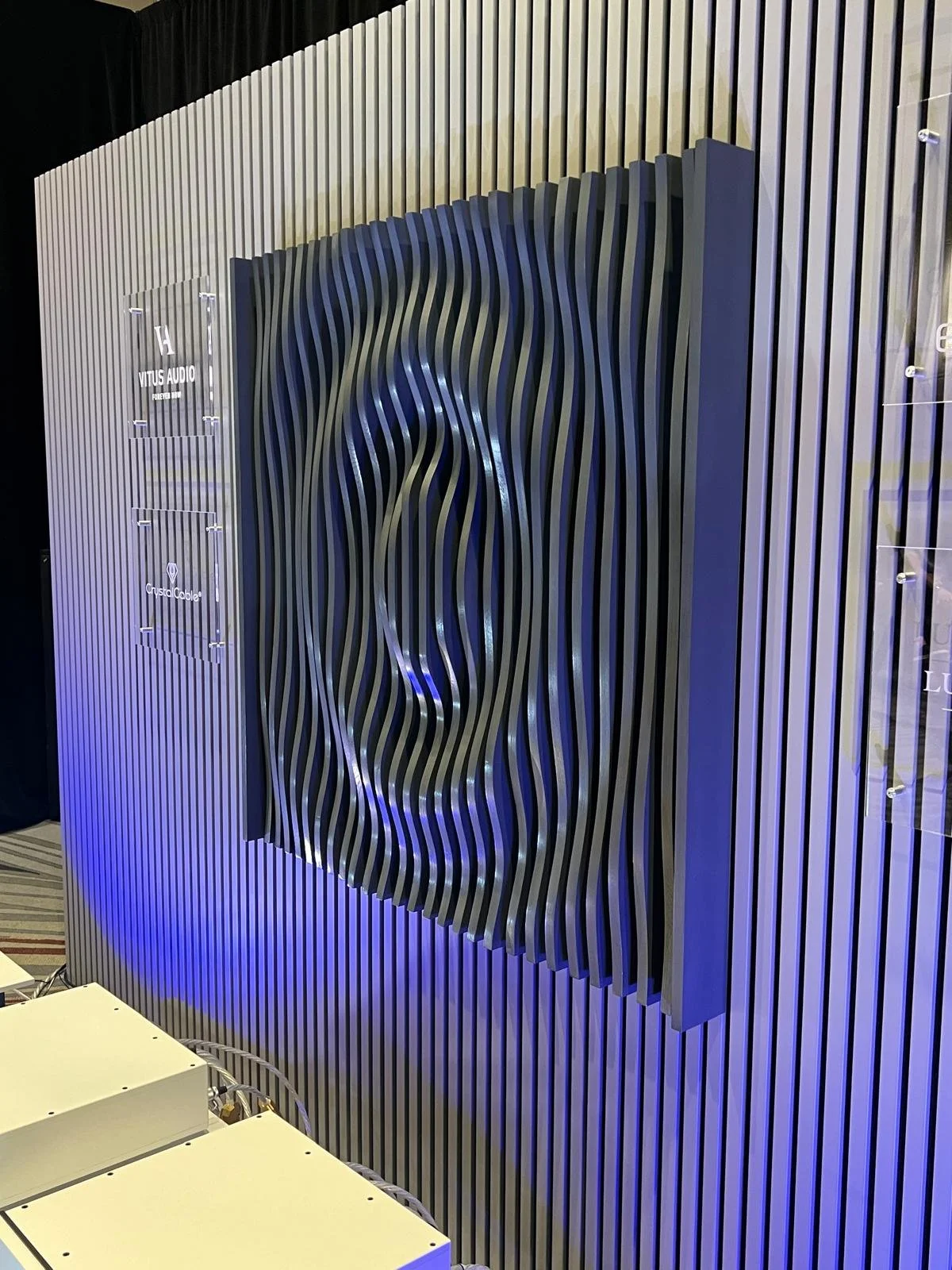












Linear design meets acoustic performance.
Key features:
combined diffusion & absorption acoustic panel
instant improvement of room acoustics
absorption effectiveness 50 % at 300 Hz
no glass wool used - recycled acoustic filler
made from FSC-certified wooden material